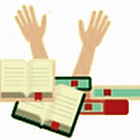Learning a new language can be a challenging but rewarding experience, and French is no exception. As with any language, there are certain difficulties that learners of French may encounter. However, with patience, persistence, and the right approach, these difficulties can be overcome. In this post, we’ll explore some of the common difficulties of learning French and how to overcome them.
Nouns and Gender:
One of the main difficulties of learning French is the gendered nature of the language. All nouns are either masculine or feminine, and this can be tricky for learners to get used to. In addition, the gender of a noun can impact the form of adjectives, articles, and pronouns that are used with it. One way to overcome this difficulty is to focus on learning the gender of nouns from the beginning, rather than trying to memorize it later on. Make flashcards or create lists of nouns with their corresponding genders, and review them regularly. As you learn new vocabulary, pay attention to the gender of each noun and practice using the correct articles and adjectives with it.
Verbs:
French verbs can be challenging due to the numerous tenses and conjugations. However, there are patterns that can be learned to make this easier. Focus on learning the most common verbs and their conjugations, and gradually build up to more complex tenses. Practice using verbs in context by reading and writing in French. Pay attention to irregular verbs, which don’t follow the same patterns as regular verbs, and practice using them in context.
Writing:
French spelling and grammar can be quite different from English, which can be daunting for learners. It’s important to practice writing in French regularly, even if it’s just short sentences or paragraphs. Pay attention to grammar and spelling rules, and try to incorporate them into your writing. You can also have a native speaker or tutor review your writing and provide feedback. This can be especially helpful for improving your use of idiomatic expressions, which can be difficult to learn from textbooks or grammar guides.
Listening and Pronunciation:
French pronunciation can be tricky, as there are many sounds that don’t exist in English. Additionally, the spoken French language can differ significantly from the written language, which can make it difficult to understand native speakers. Listening to French music, podcasts, and TV shows can help improve your understanding of the language and its pronunciation. Practice speaking out loud and record yourself to compare your pronunciation to that of native speakers. Pay attention to the intonation and rhythm of the language, which can impact how well you’re understood.
Grammar:
French grammar can be complex, but it’s important to understand it in order to use the language correctly. Focus on one grammar concept at a time and practice it until you feel comfortable. Read and listen to French material that incorporates the grammar concept you’re working on to help solidify your understanding. Don’t be afraid to ask questions or seek out additional resources if you’re struggling with a particular grammar concept. A tutor or language exchange partner can be especially helpful in this regard.
Vocabulary:
French has a rich vocabulary, with many words that have multiple meanings or nuances. In addition, there are often multiple words for the same concept, depending on the level of formality or the context in which the word is used. To build your vocabulary, focus on learning words and phrases that are relevant to your interests or goals. For example, if you’re interested in cooking, learn vocabulary related to ingredients and cooking techniques. If you’re preparing for a business trip to France, focus on learning vocabulary related to your industry or profession.

Extra tips:
In addition to these tips, it’s important to remember that learning French (or any language) is a process that takes time and effort. Don’t get discouraged if you don’t see immediate progress or if you make mistakes. Keep practicing and seeking out opportunities to use and improve your French.
Remember that everyone learns differently, so what works for someone else may not work for you. Don’t be afraid to experiment with different methods and strategies until you find what works best for you.
By focusing on developing your skills in listening, speaking, reading, and writing, as well as expanding your vocabulary and understanding of grammar, you can make steady progress in your language learning journey.
By using a combination of resources such as textbooks, podcasts, and language exchange partners, and staying motivated and persistent in your efforts, you can overcome the difficulties of learning French and achieve fluency in this beautiful language.
Be patient and persistent in your learning. Learning a language is a marathon, not a sprint, and it requires consistent effort over time. Keep at it and you will see progress!
